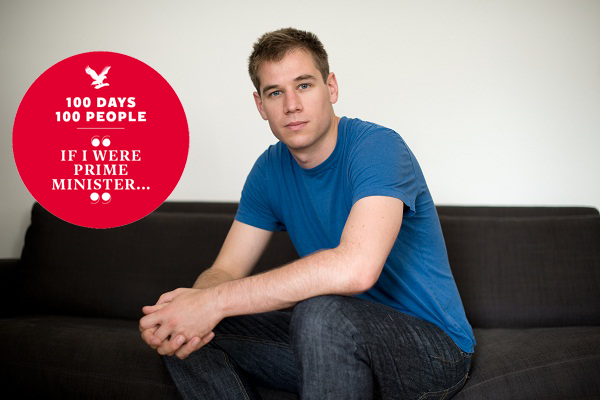If I were Prime Minister: I'd end the war on drugs
Our series in the run-up to the General Election – 100 days, 100 contributors, but no politicians – continues with the soldier-turned-lawyer

Your support helps us to tell the story
From reproductive rights to climate change to Big Tech, The Independent is on the ground when the story is developing. Whether it's investigating the financials of Elon Musk's pro-Trump PAC or producing our latest documentary, 'The A Word', which shines a light on the American women fighting for reproductive rights, we know how important it is to parse out the facts from the messaging.
At such a critical moment in US history, we need reporters on the ground. Your donation allows us to keep sending journalists to speak to both sides of the story.
The Independent is trusted by Americans across the entire political spectrum. And unlike many other quality news outlets, we choose not to lock Americans out of our reporting and analysis with paywalls. We believe quality journalism should be available to everyone, paid for by those who can afford it.
Your support makes all the difference.If I were Prime Minister I would lead the United Kingdom in ending the fatuous, failing “war on drugs” both at home and abroad.
As a soldier in Helmand I was on the front line of this so-called war and of all the confused and contradictory missions we had in Afghanistan (and there were a few) counter-narcotics was the by far the most counter-productive and downright stupid.
We spent months fighting through fields of beguiling, beautiful poppy trying desperately to assure the local farmers that we weren’t going to destroy their precious crop while politicians had the gall to pretend that among all the other madness we were getting shot to pieces to get smack off the streets at home.
In retrospect the best moment of that whole bloody tour was when the Afghan troops we were working alongside set fire to a huge cannabis field and mellowed out the valley for a couple of hours. As everyone knows, after more than a decade of fighting and billions of dollars spent on eradication programmes, poppy production in Afghanistan is at an all time high.
The counter-narcotics sideshow in Afghanistan was a desperate and patronising attempt to tart up an ugly and unpopular war, but it does serves a depressingly accurate microcosm for our current, almost wilfully irrational policy on recreational drugs: the underlying reasoning is incoherent; methods of enforcement are questionable; the unintended consequences are malign and disproportionate; and, the whole thing costs an absolute fortune.
This should be a consensus issue: austerity addicts on the right should hate the status quo because it is so cripplingly expensive (more than half of the prisoners in our equally abject prison system report being in gaol for drug related offences); the bleeding hearts on the left because it perpetuates social injustice (how many of those doing time are the predominantly white, university-educated, journalists, doctors, lawyers and probably hypocritical aspiring politicians doing coke and pills on any given summer weekend?); liberals should hate it on principle (because why should the state tell us what we can and can’t drink/smoke/put up our noses); and, if they really thought about even socially conservative traditionalists should hate it because its such a colossal waste of police time.
When the parade of voices calling for wholesale reform includes top police chiefs and leading scientists and when the Prime Minister and the Governor of the Bank of England are among those happily picking their way round the ravers at Wilderness Festival one might have thought it was time for a change but in the run-up to this election only the Liberal Democrats and the Green Party (hardly an auspicious pairing) have had the honesty and bravery to reflect in their policies what anyone with half a brain could tell you: prohibition doesn’t work.
As Prime Minister I would repeal the Misuse of Drugs Act and develop a policy focussed on treatment of addiction and evidence-based research into harm and effect. The savings from the prison, policing and criminal justice budgets would be put into those programmes and the UK would lead international calls for an end to the destructive, militarised ‘war on drugs’ and perhaps one day those Afghan farmers will be able to sell their poppy on license, which would surely have been better in the first place.
Patrick Hennessey's latest book is Kandak: Fighting with the Afghans
Join our commenting forum
Join thought-provoking conversations, follow other Independent readers and see their replies
Comments